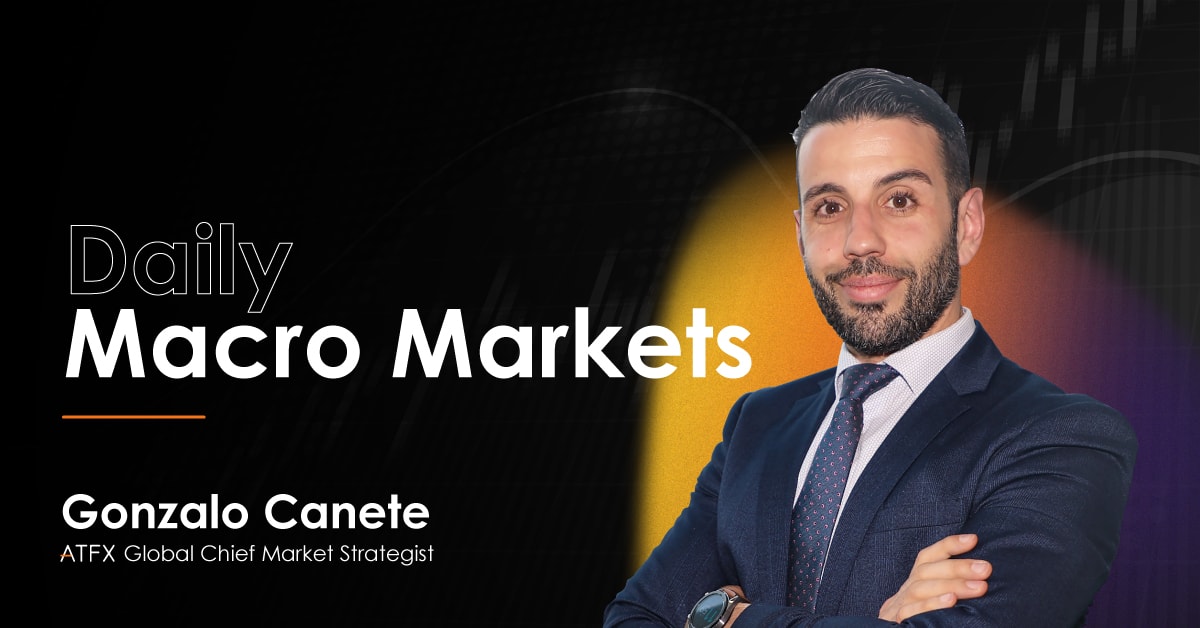📰 Market Report.
💬 The Bank of France Governor Francois Villeroy de Galhau stated that President Trump’s policies are inflicting more damage on the U.S. economy than on the rest of the world. He called Trump’s economic policies “a tragedy for the American economy.” The German central bank chief Joachim Nagel echoed this sentiment, saying “What is currently happening on the part of the U.S. administration is economic policy from a horror show.”
🇫🇷 But the truth is that France is facing an unprecedented political and budgetary crisis, and Germany is not in a better situation, with a second consecutive year of economic contraction and factory closures.
🍷 President Trump threatened to impose a 200% tariff on wine, cognac, and other alcohol imports from Europe, opening a new front in the ongoing global trade war. The threat came in response to the EU’s plan to impose tariffs on American whiskey and other products next month, which is a reaction to general Trump’s 25% tariffs on steel and aluminum imports.
🤝 Diplomats from the G7 nations were set to negotiate late into the night to try to reach a united joint statement, as tensions have risen between the U.S. and its allies over trade and security policy. The strained relations between the U.S. and its allies, particularly Canada, were evident, with Trump threatening new tariffs on European and musing about Canada as a new US state. Canadian Foreign Minister Melanie Joly said she would be on the offensive at the G7 to coordinate a response with Europeans to put pressure on the U.S.
🇺🇦 U.S. Secretary of State Marco Rubio briefed his colleagues on talks with Ukraine, but ambiguous comments from Putin left delegates unclear on the status of a potential ceasefire deal. There was wrangling over language regarding Gaza and the Middle East, notably the notion of a two-state solution, which the U.S. was resisting.
📉 The noise and fears of a recession continue: According to J.P. Morgan’s chief economist Bruce Kasman, there is now about a 40% chance of a U.S. recession this year, up from around 30% at the start of the year. Economists at Goldman Sachs and Morgan Stanley have also downgraded their U.S. GDP growth forecasts for this year, now seeing growth at 1.7% and 1.5% respectively. A pool done by Reuters last week across Canada, Mexico and the U.S. said recession risks in these economies had increased as a result of Trump’s tariffs.
📊 Meanwhile, the SP500 is losing all the nearby support that could guarantee the upward trend. As if it were a curse, even though there is no clear data in the US economy to show recession, unlike the Euro Zone, which does have such data, and whose Dax 40 index refuses to fall despite the delicate situation of the German economy. Paradoxical, but remember that the irrationality of the market is temporary.
🐉 Global investors seems to have increasingly turned to Chinese equities as a new sanctuary. Chinese stocks are trading at a 30% discount to their 2021 highs and are priced much cheaper than U.S. equities, making them appealing to investors. However, concerns remain over China’s corporate reporting standards, deflationary pressures, and the risk of a renewed U.S.-China trade war, which could weigh on sentiment. Reuters notes the irony of European and Chinese markets outperforming amid the pressure the Trump administration is putting on these “geopolitical rivals.”
🎲 Remember, Trump’s policy is a risky and dangerous gamble, but if it works, it could reverse global capital flows and turn the United States into the focus of world investment, further distancing its economy from the rest and transforming it into an oasis within Western investment markets. This contrasts with the eurozone, which has been in constant decline for two years.
💻 Let’s not forget that TSMC, the world’s largest semiconductor company, announced that it will start producing in the United States with an investment of more than 100 billion dollars. This type of agreement could demonstrate that Trump’s strategy to revive US industry has a real chance of success.
🕰 In previous reports, we mentioned Trump’s interview on Fox News last Sunday. When asked if he was concerned about the stock market crashes, Trump gave a revealing answer: he said that the Chinese economy plans 100 years ahead, while they (the United States) think quarter by quarter. This suggests that his plan is a long-term one and that he will not give in to the temporary turbulence that the market may experience.
🚦 Risks of a government shutdown: Senate Minority Leader Chuck Schumer announced he will vote to advance the Republican stopgap funding bill, signaling that Democrats will provide the votes to avert a government shutdown. Democrats had previously floated the idea of offering an amendment for a one-month funding extension, instead of the Republicans’ 6.5-month extension, to give more time for detailed spending bills. However, Democrats are unlikely to have the votes to pass such an amendment, even if it is allowed. But why make things easy for his eternal enemy Trump? Schumer said he wanted to avoid a situation where the White House and billionaire Elon Musk, whom Trump has charged with cutting government staffing and costs, would decide which federal agencies to reopen and when.
🇩🇪 In Germany, the future canciller Friedrich Merz was attacked by lawmakers from every political angle for attempting to push a financial package that was pushed by the debt before the new Parliament was even aware of it. The conservative leader defended his plans as a necessary response to the weakening of the transatlantic laziness under Trump’s presidency.
⚖️ The German constitutional court has rejected a lawsuit filed by the populist left-wing party BSW requesting a recount of the votes cast in last month’s national elections. The court’s decision comes a day before lawmakers are due to announce the official results of the 23 February elections.
⚔️ Putin suggested that the failure of the Ukrainian operation on the Kursk, with Russian forces trapping a large group of Ukrainian soldiers and mercenaries on the ground, are the main motivations for a ceasefire and to be able to regroup his troops, and not a real intention to negotiate an end to the war.
🤝 However, Russian President Vladimir Putin expressed his desire to discuss a planned ceasefire in Ukraine with Trump, despite his support for peaceful resolution. Trump expressed interest in discussing this during NATO Secretary General Mark Rutte’s visit to the White House, but warned that a non-Russian agreement would be disappointing for the world. Putin also suggested increased energy cooperation with the US could lead to lower petrol costs in Europe.
🛢 Perhaps Russia is suggesting that it would only accept a ceasefire if the sanctions blocking its access to European markets were lifted?
📉 Gazprom, the Russian state gas giant, is arguably the Russian business hardest hit by the international sanctions imposed after Russia’s invasion of Ukraine. Gazprom’s export arm, which oversaw gas sales to Europe for over half a century, has seen its staff shrink from 600 to just a few dozen employees as European markets have been lost. Gazprom’s parent company is also planning to cut around 1,500 jobs, or 40% of the staff, at its headquarters in Russia and Europe. Gazprom posted a net loss of $7 billion in 2023, its first since 1999, and another loss in the first 9 months of 2024. Recently, Putin suggested the possibility of repairing Nord Stream II only if Germany showed interest in returning to its old agreements with Russia.
💡 It remains to be analysed whether the energy substitutes that Europe has adopted are more or less profitable than energy from Russia and whether this perhaps explains the decline that the European economy has been suffering since then.
📈 Market View:
📉 US futures continue with a bearish trend that is beginning to cause concern. Mini S&P 500 futures are losing key support: currently, the Mini S&P 500 is trading below 5600 points, standing at 5555 points. Meanwhile, Nasdaq 100 futures have lost the 19,400 point level and are now trading at 19,380 points.
📈 Reuters highlighted the divergence that is taking place with the Chinese stock market. The Hang Seng Index (HSI) has risen almost 4% in the last few hours, accumulating a 25% return since February. It is currently trading at 24,050 points.
💵 The dollar recovers some of the losses accumulated during the week. The dollar index (DXY) is back above 104 points, while the euro-dollar pair (EURUSD) has again lost the 1.09 level, currently trading at 1.0830.
📊 The European stock markets are managing to hold firm despite the falls on Wall Street, which is striking and opens up opportunities for bidirectional trading strategies. DAX 40 futures are currently trading at 22,600 points.
🛢 The crude oil market is showing slight signs of recovery after the falls of recent weeks. A barrel of Brent seems to have consolidated above $68 and is now trying to reach $71, currently trading at $70.50.
🥇 Gold has surpassed its previous highs in the last few hours, reaching $3,000 per ounce.
💰 Bitcoin, after having recovered $84,000, fell again yesterday. It is now trying to climb again and is currently trading at $82,375.

